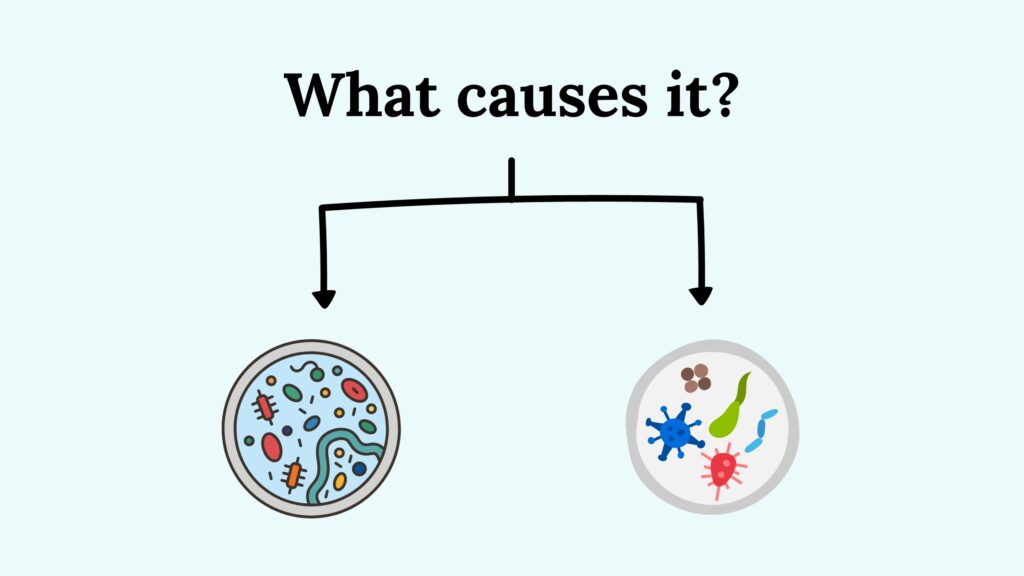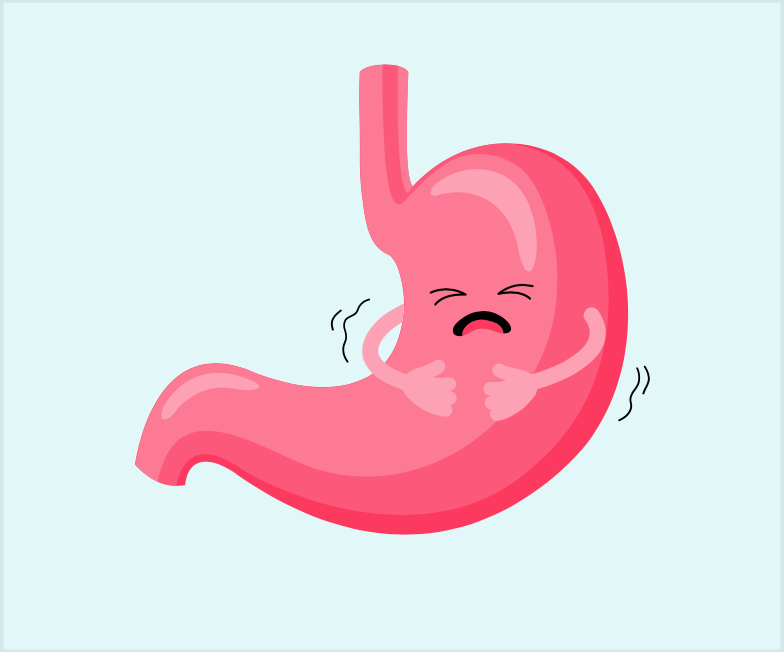Acute gastroenteritis, also known as stomach flu, is a disease caused by infection of the gastrointestinal tract. Symptoms include:
– Diarrhea (without any blood)
– Nausea and vomiting
– Headache
– Muscle and stomach aches
– Exhaustion
– Fever

1) Bacteria and parasites that we could ingest together with undercooked contaminated food, for example, pork.
2) Viruses such as rotavirus, adenovirus, astrovirus, and norovirus. The first three mainly affect babies and young children, while the norovirus is the main cause of gastroenteritis in adults, although it affects people of all ages. It is mostly responsible for the epidemic of viral gastroenteritis. Norovirus outbreaks can occur all throughout the year. Infected people commonly experience nausea, vomiting, diarrhea, abdominal pain, fatigue, headaches and muscle aches. The symptoms of stomach flu appear in the first 2 days after the contact with the virus and last for 1 to 3 days.
It is very easy to confuse viral gastroenteritis with gastroenteritis caused by bacteria or parasites since they manifest very similar symptoms and evolution.
This disease is very contagious, so it is likely that if you have suffered from it, there have been other people in your circle who have also been affected.
How to fight gastroenteritis:
If you are NOT an elderly person or a baby, you will probably recover without any complications in a couple of days. However, you need to seek medical attention in the following cases:
a) if you have not been able to drink water without vomiting for more than 24 hours
b) if you have been vomiting or had diarrhea for more than 2 days
c) if you are vomiting blood
d) if you are dehydrated
e) if you have noticed blood in your stool
f) if you have a severe stomach ache
g) if you have a fever higher than 40°C
You should go to the emergency department of your hospital or health center if you have been vomiting more than 4 times in a row to stop the vomiting and prevent the risk of dehydration.

Your medical specialist will most likely prescribe you the following:
a) To stay at home until the symptoms disappear;
b) To take an oral rehydration solution for 1 day;
c) To take probiotics for 1 week;
d) To drink plenty of water and infusions;
e) To follow a special diet for at least 3 days:
The foods you are allowed to take: Broth, white rice, pasta soup, boiled or mashed carrots, white bread (also toasted), boiled or grilled white fish, lean meats such as boiled chicken or beef, boiled eggs, grated apple, bananas, natural yogurt, cold cuts (ham, turkey, chicken), mashed potato.
The foods you should avoid are milk, fruits and vegetables, especially green leafy vegetables (chard, spinach, lettuce), sweets, juices, soft drinks, alcohol, and caffeine.
In the case of bacterial gastroenteritis, prevention is done by washing hands thoroughly before cooking, cooking the foods well, and refrigerating them as soon as possible after they reach room temperature. Avoid using raw eggs, or use pasteurised eggs instead for mayonnaise and sauces preparation.
When a person who gets infected with gastroenteritis is in the risk group, such as children, the elderly, or people who suffer from diabetes, they should be watched closely because they tend to dehydrate more easily.
